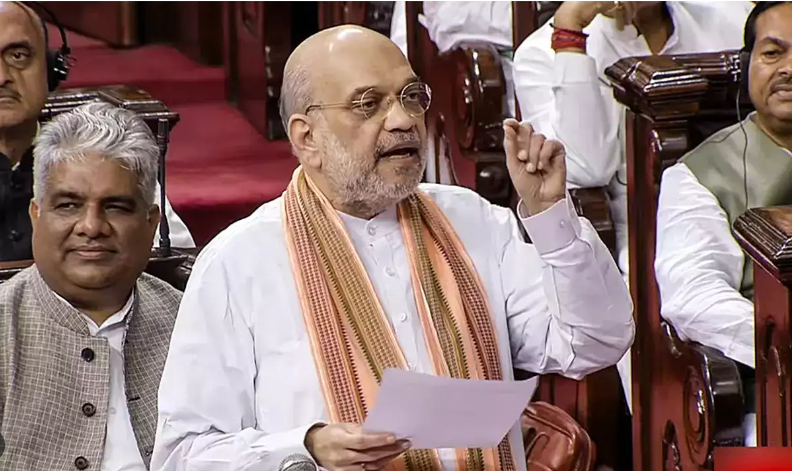Centre presented updated Criminal Reform Bills in the Lok Sabha, aims to replace IPC, CrPC, and Evidence Act
September 14, 2024

Overview: On December 12, the Central Government introduced revised criminal reform bills in the Lok Sabha, having withdrawn the previous versions.
Home Minister Amit Shah presented 'The Bharatiya Nyaya (Second) Sanhita, 2023,' 'The Bharatiya Nagarik Suraksha (Second) Sanhita, 2023,' and 'The Bharatiya Sakshya (Second) Bill, 2023.' These bills aim to replace the Indian Penal Code, the Code of Criminal Procedure, and the Indian Evidence Act, respectively, incorporating recommendations from the Parliamentary Standing Committee.
Centre Introduces Reform Bills to Overhaul IPC, CrPC, and Evidence Act
The Home Minister highlighted that most of the changes are of a grammatical nature. Discussions on the bills are scheduled for December 14.
In the previous month, the Parliamentary Standing Committee on Home Affairs submitted its reports on the proposed bills, proposing several changes. For instance, the committee recommended introducing a gender-neutral provision to criminalize adultery, which was invalidated by the Supreme Court in 2018. Additionally, it suggested retaining a provision similar to Section 377 IPC for the criminalization of non-consensual homosexual acts.
Know the History of these Criminal laws: Click Here
In the preceding month, the Parliamentary Standing Committee on Home Affairs presented its findings on the proposed bills, proposing various amendments. As an illustration, the committee suggested the introduction of a gender-neutral provision to criminalize adultery, which had been invalidated by the Supreme Court in 2018. Additionally, it advocated for the retention of a provision similar to Section 377 IPC to address non-consensual homosexual acts.
Furthermore, the panel recommended the inclusion of provisions in the new CrPC bill to ensure the safeguarding of digital evidence. It also expressed reservations about the provision that permitted police custody extending beyond 15 days following an arrest. Additionally, the committee suggested that the modalities of online FIRs should be determined by the States.
The panel also advised including provisions in the new CrPC bill to address digital evidence concerns. It expressed reservations about the provision allowing police custody beyond 15 days after an arrest and suggested that the modalities of online FIRs be left to the discretion of the States.
Related Blogs:
